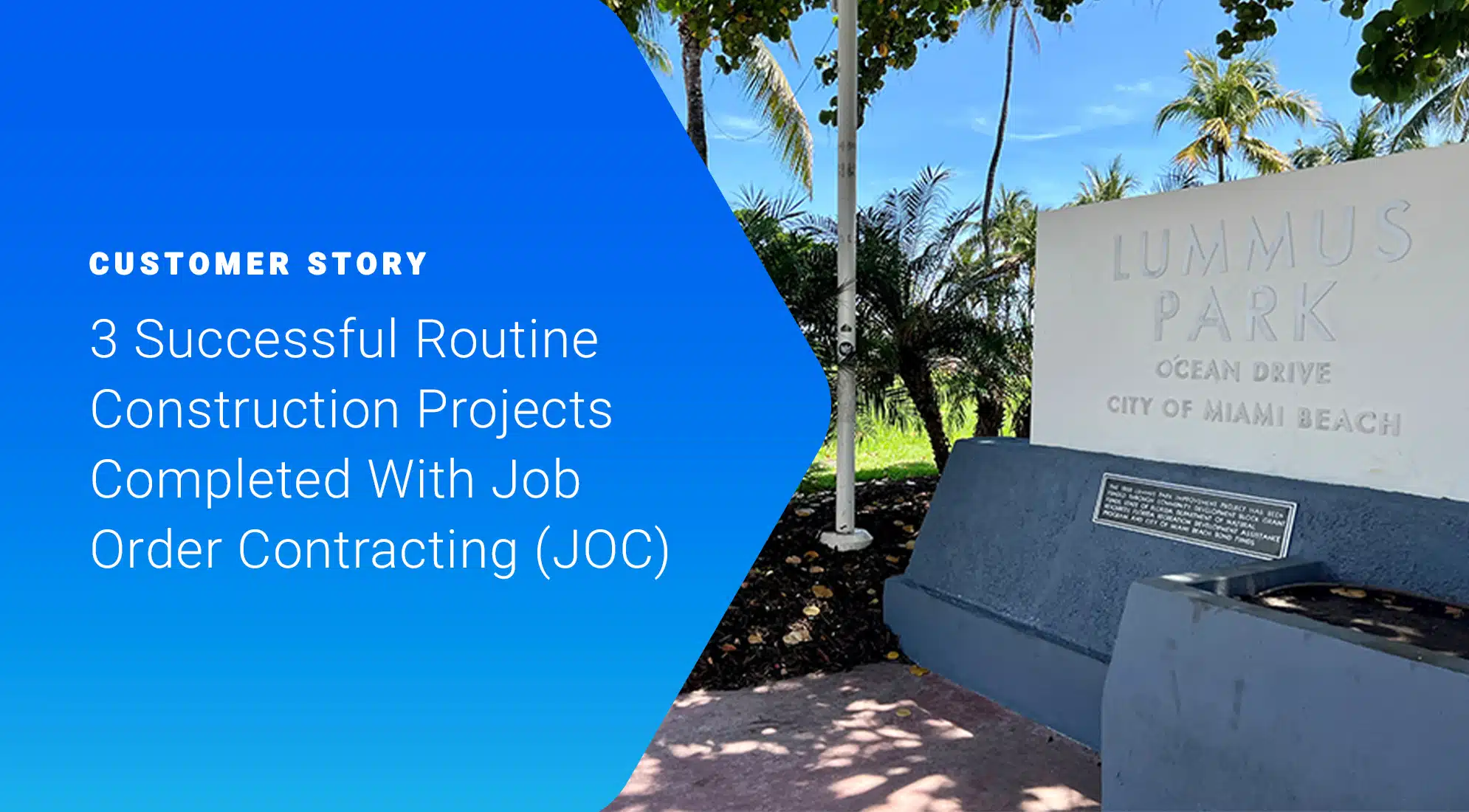Planning a construction project involves dozens of moving parts. Whether you’re building an office, renovating a school gymnasium or constructing a brand-new community facility, proper planning is the foundation of success. Following the right steps from the outset, you can avoid costly mistakes, reduce delays and ensure your construction project meets both your expectations and regulatory standards.
In this blog post, we’ll discuss essential tips to help you plan your upcoming construction project effectively.
Want to start your construction project today? Learn how now.
Define Your Project Goals and Objectives
The first and most important step in planning any construction project is defining your organization’s goals and objectives. Without a clear understanding of what you want to achieve, it’s nearly impossible to stay on track during the construction process. Take the time to define your project’s scope, goals and desired outcomes in as much detail as possible.
Key Points to Consider When Defining Your Project Goals:
- Project Purpose: In one or two sentences, describe the primary function of the structure, repair or renovation.
- Budget Considerations: How much are you willing to spend on the entire project, including labor, materials, permits and contingencies?
- Timeline: Establish a realistic project timeline with your team that outlines key milestones and deadlines. Having a clear timeframe will keep all parties involved accountable.
- Quality Standards: Determine the quality expectations for materials, finishes and workmanship to ensure the final outcome meets your standards.
- Regulatory Compliance: Ensure you understand the local zoning laws, building codes and regulations that may affect your project.
Working on an upcoming project? Use our Job Order Contracting (JOC) Calculator to see if your project is a good fit.
Assemble Your Team of Experts
A successful construction project requires a team of skilled professionals, each of whom brings unique expertise to the table. The next step in your planning process is assembling a reliable, experienced team.
This team should include:
- Project Manager: The project manager will oversee the day-to-day operations of the project, ensuring tasks are completed on time and within budget. They’ll handle communication between all parties involved, such as contractors, subcontractors, suppliers and local authorities.
- Architects/Designers: If your project involves designing a new building or structure, or requires extensive renovations, an architect or designer will work with you to create detailed blueprints and designs.
- General Contractor: A general contractor is responsible for coordinating the construction process. They’ll manage the construction site, oversee subcontractors and ensure that the work is completed according to the plans.
- Engineers: Depending on the complexity of your project, you may need structural, electrical or mechanical engineers to design the systems that will be integrated into the building.
Choosing the right team is critical for ensuring that your project runs smoothly. Take the time to vet candidates and work with professionals who have a proven track record in the construction industry.
Create a Detailed Project Plan
A detailed project plan is a comprehensive document that outlines all aspects of the construction process. This plan serves as a roadmap for the entire project and ensures that everyone involved is on the same page. It should cover the following areas:
Project Scope
Outline the full scope of the project, including the specific tasks and deliverables that must be completed. This ensures there is no ambiguity about the expectations for each phase of construction.
Timeline
A construction timeline is an essential component of your project plan. Break down the entire project into phases, and establish deadlines for each stage of the process, from site preparation to final inspections.
Budget Breakdown
Your project budget should be broken down into categories such as labor, materials, permits, equipment and contingency funds. This breakdown will help you manage resources effectively and keep costs in check.
Risk Management
Identify potential risks that could delay or derail your project, such as weather delays, supply chain issues or regulatory changes. Develop a contingency plan to mitigate these risks and adjust the timeline or budget as needed.
Communication Plan
Clearly define how information will be communicated between the project team members, stakeholders and clients. Regular meetings and updates will ensure that everyone stays informed and that issues are addressed promptly.
Need to get your project moving right away? Take these three simple steps now.
Strategically Select the Project Delivery Method Best Suited to Your Construction Project
All construction projects, repairs and renovations are nuanced and unique. Therefore, taking a one-size-fits-all approach to selecting a project delivery method is seldom useful. With multiple construction project delivery methods to choose from, such as Design-Bid-Build, Design-Build, Construction Manager at Risk and more, knowing the pros and cons of each is a wise way to approach your project from the very beginning.
One of the most streamlined approaches to a wide variety of construction projects is Job Order Contracting (also known as JOC). JOC is an Indefinite Delivery, Indefinite Quantity (IDIQ) approach, allowing for multiple projects to be carried out throughout the duration of a single, long-term contract, unlike single-project contracts.

Gordian schedules a meeting at the site for those involved to discuss project and design details.
Gordian helps prepare a Detailed Scope of Work that describes the work the contractor will perform.
The contractor prepares a Price Proposal by selecting the appropriate tasks from Gordian’s Construction Cost Catalog® (CTC).
Gordian reviews the Price Proposal to ensure the contractor has selected the appropriate tasks and quantities.
Once the Price Proposal is approved, you issue a Job Order for the contractor to proceed.
The JOC method is tailored for handling a series of specific construction tasks, making it ideal for a range of routine, operational projects such as repairs, renovations and maintenance — particularly when tight deadlines or set budgets are a factor.
In order to strategically select the right project delivery method, conduct research and leverage tools (such as this helpful JOC calculator) to help you make the best choice.
Utilizing expert construction tips and knowledge at the outset of any repair, renovation or new build is essential for achieving success. No matter how small or large the project, advanced planning, a skillful team and the right project delivery method should always be a priority.





